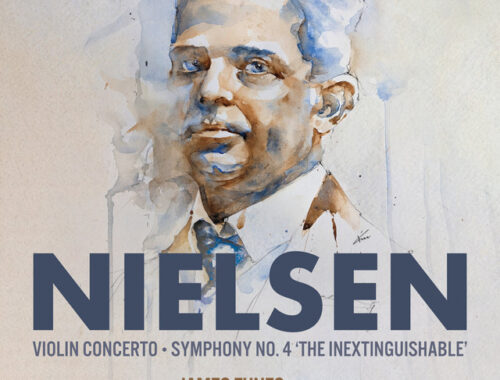London Symphony Orchestra, Petrenko, Barbican Hall (Review)
 It should have been Sir Colin Davis, of course (and the news filtering through on Sir Colin is sadly not encouraging), but the very first chord of Beethoven’s “Emperor” Concerto was a startling demonstration of what makes the interpretative business of music so endlessly fascinating. The character of that first chord under Vasily Petrenko could not have been further removed from the kind of attack and sound that Sir Colin would have wrought from the London Symphony Orchestra. Hard timpani sticks for starters and an altogether more leavened open texture. As the first tutti took hold the cleanness of attack, the rhythmic buoyancy and vigour lent uplift – there was simply more air in the sound.
It should have been Sir Colin Davis, of course (and the news filtering through on Sir Colin is sadly not encouraging), but the very first chord of Beethoven’s “Emperor” Concerto was a startling demonstration of what makes the interpretative business of music so endlessly fascinating. The character of that first chord under Vasily Petrenko could not have been further removed from the kind of attack and sound that Sir Colin would have wrought from the London Symphony Orchestra. Hard timpani sticks for starters and an altogether more leavened open texture. As the first tutti took hold the cleanness of attack, the rhythmic buoyancy and vigour lent uplift – there was simply more air in the sound.
But what was the soloist Simon Trpceski doing? His followers were out in force and under normal circumstances I would count myself one of them. But I’ve never heard him play Beethoven before and on this showing I’m not sure I’d want to again. What quickly became apparent here (and we have come to expect it) was the ease and accomplishment of the technique – an urbane air was quickly established and prevailed throughout. We were closer to the ethos of Mozart than Beethoven. There was grandiosity to a point but no sense of conflict, of struggle, of drama, or indeed that mystical remoteness that characterises those moments where Beethoven the classicist scents Beethoven the full-blown romantic.
The glorious slow movement, initially laid down in downy strings, was almost wilfully anti-romantic with no give in the placing of individual notes and phrases and a plainness that even a hint of rubato might have helped alleviate. Even the flamboyance of the finale felt muted with too little distinction drawn between the character of each variation and the jazziest of them in the bass register so low-key and laid back that it was almost horizontal. If Trpceski’s intention was to steam-clean the piece and render it an entirely new experience he did so at the expense of the work’s challenging nature. The majority of the audience seemed to disagree.
A couple of critics (at least one of whom was writing) left at the interval, doubtless because a lack of review space meant that they were doubling up on the week’s pianistic highlights. What they missed by leaving (and the public consequently will not be reading about in at least one particular paper) was a remarkable account of a great British symphony – Elgar’s First. We know how gifted Vasily Petrenko is from his sterling work in Liverpool but I could not have predicted how sensitively and instinctively he would embrace the character of this tremendous work, how excitingly he would grasp the sweep and volatility of it. There is something very particularly English about the way Elgar expresses wistfulness and regret, the syntax of his musical language and the complexity and density of his scoring. For want of a more elegant phrase, Petrenko knew precisely how the music went. And that’s something you don’t learn but feel.
He was, of course, served by an orchestra that knows all about Elgar and whose playing thrilled and moved in equal measure. The way the great nobilmente theme rolled out across the symphony permeating everything, the way the lyric counter-subjects were buffeted by the winds of change. The arrival of the slow movement from the militaristic swagger of the scherzo was extraordinarily beautiful and the final hushed recollection in strings seemed barely “in the air” with principal clarinet Andrew Marriner’s final notes palely peeping through the final chord. All this was unforgettable, as was the euphoria of the triumphant coda with those great surges of orchestral sound pushing against the barlines. Undoubtedly one of the great symphonic performances of 2012.



4 Comments
Gillian Smith
Completely agree about the Elgar – it was a stonking performance.
Tim Riley
Any idea what the (Beethoven?) encore was that Trpčeski played after the Emperor? I dipped into the Bagatelles yesterday, but I don’t think it was any of them.
As to the main items, I take the point that the Emperor was not very Imperial, but there was a sheer enjoyment that communicated itself to me (and the LSO players were grinning when applauding Trpčeski at the end.) I thought the first mvt of the Elgar needed a tighter rein and threatened to ramble, but after that all was top flight.
Desperately sorry to read the hint that Sir Colin is not recovering as expected.
Edward
Hi Tim
I’m afraid I, too, have no idea what the encore was – Beethoven, I am guessing, but not a piece I am familiar with. Since he chose to speak to the audience anyway it would have been helpful of him to identify it.
Beethoven’s Emperor is about so much more than enjoyment (though that – or rather a sense of relish – has to be a part of it). Tryceski played it with an ease and detachment that conveyed little of the work’s audacity and – as ever – sense of struggle and innovation. It should always startle and move and mystify us. I felt none of that.
Tim Riley
Not intended for public posting – just a thank you for your response, above. There are critics one turns to with confidence – Billington for theatre, Seckerson for music – and critics one doesn’t such as … well, well perhaps I’ll leave it there.